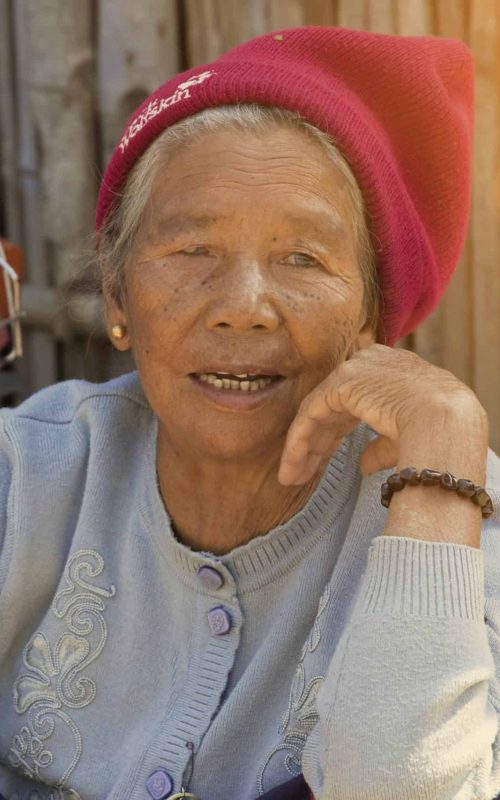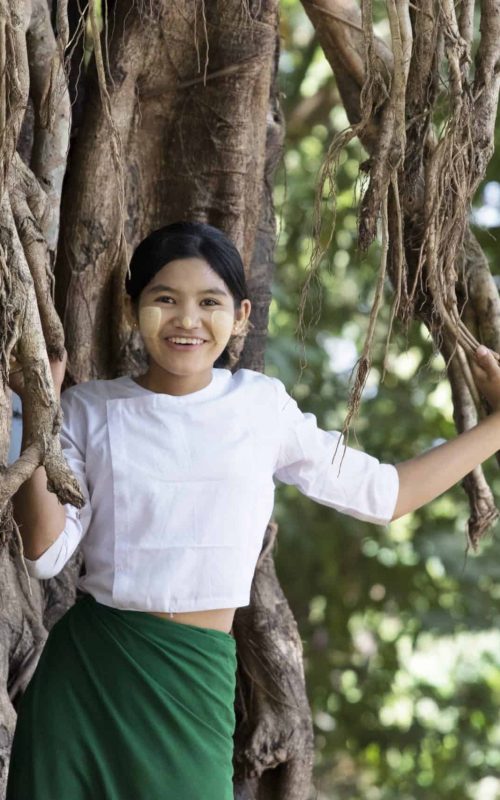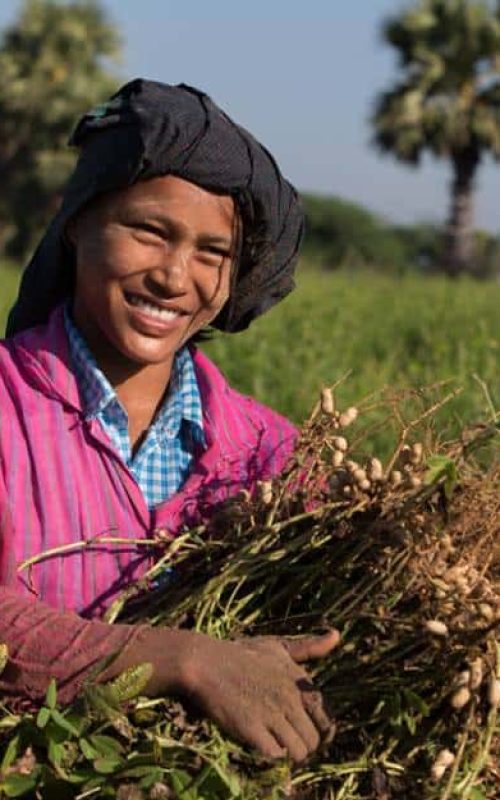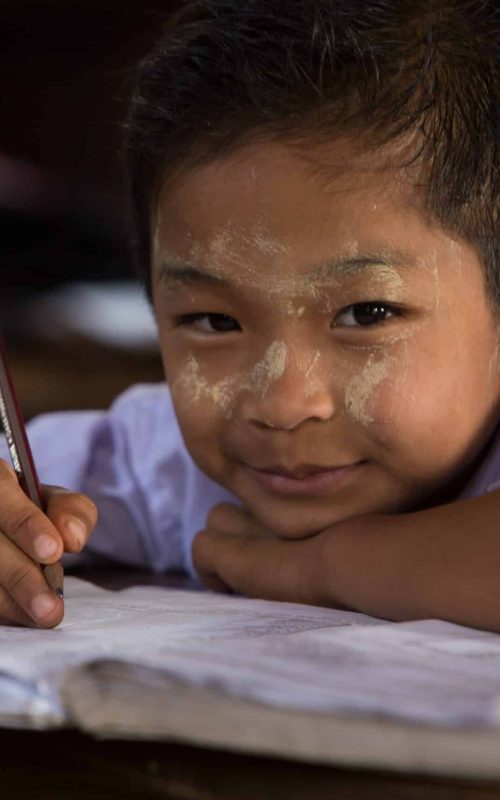Myanmar
ADRA'S IMPACT
STARTED WORK
IMPACT AREAS
Severe economic crisis, acute electricity shortages, inflation, escalating cost of living, harsh monsoon effects, and continued armed conflict led to a new humanitarian environment in Myanmar. With the humanitarian needs on the rise in 2022, the number of children out of school has increased to 7.8 million, more than half of the country’s child population, 250,000 of them were internally displaced. Over 1.5 million people remain internally displaced, and nearly half of the population are living below the poverty line (UN report). The Myanmar Humanitarian Needs Overview estimated that 14.4 million people, including five million children needed
ADRA Myanmar’s education programs aim to provide assistance to teachers, students, communities, and schools to enhance local education systems and improve quality of learning through provision of learning materials, developing school infrastructure, promoting professional development of teachers, support to school management and parent teacher associations, and support for advocacy and policy development. Positive relationships have been developed with Indigenous Providers of Education in conflict affected areas where children do not have access to an education, reaching thousands of Out of School children through teachers establishing Education service (TEES) programs and distributing teaching and learning materials. For those who have “missed” the opportunity for education, technical and vocational education, and training (TVET) programs provide youth with employable skills through market-driven competency-based short courses that are certified. ADRA is also a part of the Ethnic Education in States and Regions (ESSR) group which is supporting ethnic education in Myanmar.
Agricultural programs introduce climate-smart agricultural approaches, as well as piloting holistic grazing management practices to address land degradation. Programs are focused on building technical knowledge and learning to enable future evidence-based planning and policy dialogue to address climate change and extreme weather-related events; building resilience through enabling the development of absorptive, adaptive, and transformative capacities; and knowledge and strategies for sustainable livelihoods. Beneficiaries are provided training in planting of seasonal crops, raising, and caring for livestock, developing cultural skills such as weaving and increasing knowledge of value chain marketing to increase income generation. Programs in upland areas focus on improving natural resource management and land use planning using Sloping Agricultural Land Technologies (SALT) and diversifying livelihoods to reduce dependence on rain fed agriculture to improve water management. This promotes sustainable forest land management and prevention of land degradation through reducing overuse of swidden agriculture techniques.
ADRA Myanmar’s Health and nutrition programs support vulnerable population groups in conflict affected areas. The programs improve the health and nutrition of communities by: providing training to health workers in maternal, newborn, and child health, improving nutrition rates amongst pregnant mothers and children, providing hygiene education, developing water, sanitation, and medical facilities, operating mobile health clinics, providing medical supplies, supporting referrals, promoting healthy living and increasing awareness on relevant health issues. ADRA Myanmar focuses on water and sanitation services, primary health care services which includes basic curative care, maternal and child health services, sexual and reproductive health, prevention and control of communicable diseases, chronic disease management, health education and community outreach and coordination and referral systems for displaced people in hard-to-reach remote areas.
ADRA Myanmar provides humanitarian assistance to those affected by natural disasters or conflict through multi-purpose cash grants, cash for work, food assistance, non-food items, shelter assistance, and increasing access to clean water and sanitation facilities. A National Emergency Management Plan (NEMP) is in place that establishes the rapid mobilization of team members and resources in the event of a disaster. Through partnerships, ADRA Myanmar works in conflict affected areas to support the education of children and youth, health and livelihoods for internally displaced people and the surrounding local communities.




FEATURED STORY
The Value of Education
When I was 17 I was studying medicine at a training school. A few months later, conflict started with planes striking down from the air. We ran for safety and went into hiding, but soon relocated to an IDP camp in Myanmar’s north. After a few years, I met my husband. We married and had a family. Over 500 people live here in 99 households.
Before the conflict, my education was good, but now our life is difficult. I volunteer as a child case worker and my husband runs a barbershop, but it is not enough to make ends meet. Soon we heard of ADRA’s project providing cash assistance and WASH. The WASH activities are good and I have gained a lot of knowledge. Since the project supported us, we can now buy medicine and other necessary items like oil, rice and clothes.
Education is very important to our family. I want my children to be educated. My mother also knows education is very important. She used to sell oranges and cows to pay for our education. She has always been a good mother to us. Now, if we live in the IDP camp, sometimes we can get support. My brother and sister have both passed their matriculation exam and my daughter attends KG in the camp, so this is good for our family. Thank you to ADRA.
ADRA Myanmar
Address:
Phone:
SEARCH ANOTHER
Search another Country to learn more about where ADRA works
BECOME A PARTNER
Share your expertise, share our mission – together with ADRA, your organization can make a real difference in the lives of those in need.